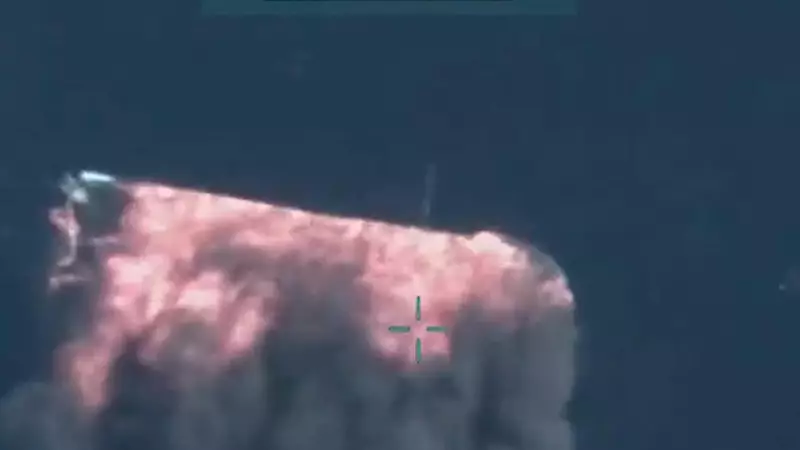
In a significant escalation of its counter-narcotics campaign, the United States military has conducted its twentieth successful strike against drug trafficking vessels in the Caribbean Sea, resulting in the elimination of four alleged narco-terrorists. The operation marks a continued aggressive stance against maritime drug smuggling networks operating in international waters.
Details of the Latest Counter-Narcotics Operation
The US Southern Command, responsible for military operations throughout Latin America and the Caribbean, confirmed that their forces targeted and neutralized a suspected drug-smuggling boat carrying four individuals identified as narco-terrorists. According to official statements, all four suspects were killed during the military engagement, which occurred during routine surveillance and interdiction operations.
This represents the twentieth such operation conducted by US forces in the Caribbean region, demonstrating an ongoing commitment to disrupting transnational drug trafficking routes. Military officials emphasized that these strikes are part of a broader strategy to combat the flow of illegal narcotics toward North American shores and to dismantle criminal organizations that threaten regional security.
The Escalating Campaign Against Maritime Drug Trafficking
The persistent military action underscores the growing concern about narco-terrorism in the Caribbean waters, where drug cartels have increasingly used maritime routes to transport narcotics. US authorities have documented numerous instances where drug trafficking organizations collaborate with terrorist groups, creating complex security challenges that require military intervention.
Experts monitoring the situation note that the frequency of these strikes indicates both the prevalence of drug smuggling activities in the region and the US government's determination to address the threat at its source. The Caribbean has long served as a major transit zone for narcotics moving from South America to the United States and Europe, making it a critical focus for international law enforcement and military operations.
Implications for Regional Security and Global Counter-Narcotics Efforts
The successful execution of twenty separate interdiction operations highlights the sophisticated intelligence and surveillance capabilities that US forces have deployed in the region. Military analysts suggest that these operations rely on advanced monitoring technology, satellite imagery, and coordinated intelligence sharing with partner nations to identify and track suspicious vessels.
The elimination of four narco-terrorists in this latest strike raises important questions about the evolving nature of security threats in the Western Hemisphere. The term "narco-terrorist" typically refers to individuals or groups that engage in both drug trafficking and terrorist activities, often using drug profits to fund insurgencies or political violence.
Regional security experts warn that the continued operations, while successful in disrupting specific smuggling attempts, point to a larger, more persistent problem that requires comprehensive solutions beyond military action alone. The situation underscores the need for enhanced international cooperation in addressing the root causes of drug production and trafficking while strengthening legal frameworks to prosecute those involved in these illicit networks.
As the US military continues its campaign against drug trafficking in Caribbean waters, observers anticipate further such operations in the coming months. The consistent pattern of strikes suggests this has become a standard component of US security policy in the region, with significant implications for international narcotics control and hemispheric security arrangements.





